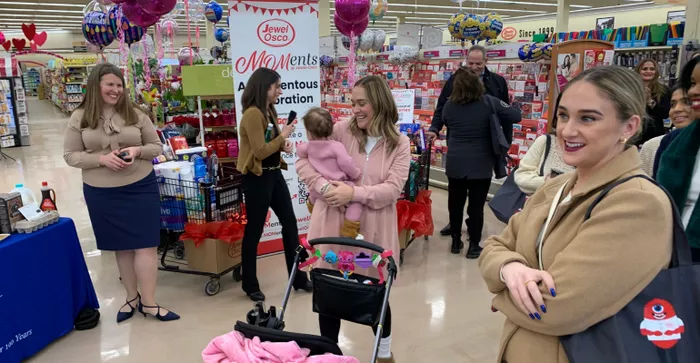Price, convenience, and nutritional content are key drivers in baby-product sales as more consumers shift toward online shopping for these items.
A February survey by research firm Jungle Scout, involving 1,000 consumers, revealed that Walmart brick-and-mortar stores are the top choice for baby products, with 10% of consumers favoring them. Amazon followed closely at 8%, and Walmart.com at 7%. Both Target stores and Target.com were preferred by 4% of consumers each.
The study also highlighted that baby products were among the fastest-growing categories on Amazon in the first quarter, with a 9% year-over-year sales increase.
According to research firm NIQ, overall dollar sales of baby care products across all retail segments rose 2% to approximately $19 billion in the 52 weeks ending May 4, compared to the previous year. However, unit sales dropped by 5% due to a 7.3% increase in average unit prices.
Among the major categories, diapering needs saw a 3.6% increase in dollar sales and a 1.4% rise in unit sales, showing minimal inflation impact. Within this category, disposable diapers experienced a 2.8% increase in dollar sales and a 0.7% rise in unit sales, while baby wipes saw a 7.1% increase in dollar sales and a 2.9% rise in unit sales.
Inflation had a more significant impact on baby food, with dollar sales up 1.3% but unit sales down 6.2%, alongside an 8% rise in unit prices. Infant formula saw a 6.9% increase in dollar sales, but unit sales fell by 7.3% amid a 15.3% increase in unit prices.
A recent McKinsey & Co. survey found that unit sales of baby products dropped about 4% in grocery and mass retail stores in 2023, while online platform sales remained flat. Among those who reported reduced purchases, most cited needing less than the previous year, but 25% blamed higher prices, and 18% said economic reasons limited their purchases.
The Nutrition Factor
In addition to price and convenience, nutritional content is increasingly important to parents when buying baby and infant foods, according to Christine McNerney, VP of merchandising operations and home, health, and beauty categories at Thrive Market.
“Parents want snacks and foods that are nutritious, with attributes like high protein and low sugar, while also being convenient,” McNerney said. “Thrive Market members are looking for better alternatives to traditional products and prefer easy formats like pouches, snack packs, and bars.”
McNerney noted that sales of baby and kids’ foods at Thrive Market have been growing at high double-digit rates for the past two years. Additionally, baby and kids’ supplements and body care products are also experiencing significant growth.
Thrive Market aims to be a comprehensive destination for families, with new parents and young families now making up about 65% of new memberships, McNerney said.
“We prioritize meeting the needs of parents at every life stage and plan to expand our assortment accordingly,” she added.
Building Long-Term Loyalty
Supermarket rivals like Target and Amazon also aim to be one-stop shops for baby care, offering baby foods, diapers, wipes, and health and beauty products, as well as support for new and expectant families.
“Retailers are looking to build loyalty,” said Jen Saxton, founder and CEO of Tot Squad, a platform connecting families with experts offering services like sleep counseling, nutrition advice, and car-seat installation. “If Amazon can provide both products and support services, it becomes a one-stop shop, driving customer loyalty.”
Tot Squad introduced its services at Target last year and quietly launched on Amazon, with an official announcement planned for June. The company is exploring partnerships with traditional supermarkets and drugstores.
Saxton noted the popularity of their diet and nutrition services, which range from prenatal vitamin advice to nutrition for nursing mothers and babies.
“We see potential for our diet- and feeding-related services to integrate more with grocery retail in the future,” Saxton said.
Mother’s Day Tie-Ins
Retailers leveraged the recent Mother’s Day holiday to strengthen their appeal to new families. Jewel-Osco in Chicago, for example, launched a campaign celebrating mothers, culminating in a prize giveaway just before Mother’s Day. Sponsored by Huggies, Kimberly-Clark, Kraft, and Mondelez, the campaign included a $20,000 donation to the Junior League of Chicago for its Bundles for Babies diaper drive.
The MOMents promotion, created by Jewel-Osco’s senior marketing director Tina Browen, encouraged customers to nominate deserving moms for prizes and groceries. The campaign received over 10,000 entries, awarding $500 grocery deliveries to 50 local mothers and selecting another 50 women for a celebration event at the Four Seasons Chicago. Other prizes included a $500 Jewel-Osco gift card, Justin Timberlake concert tickets, and a one-night stay at the Four Seasons.


